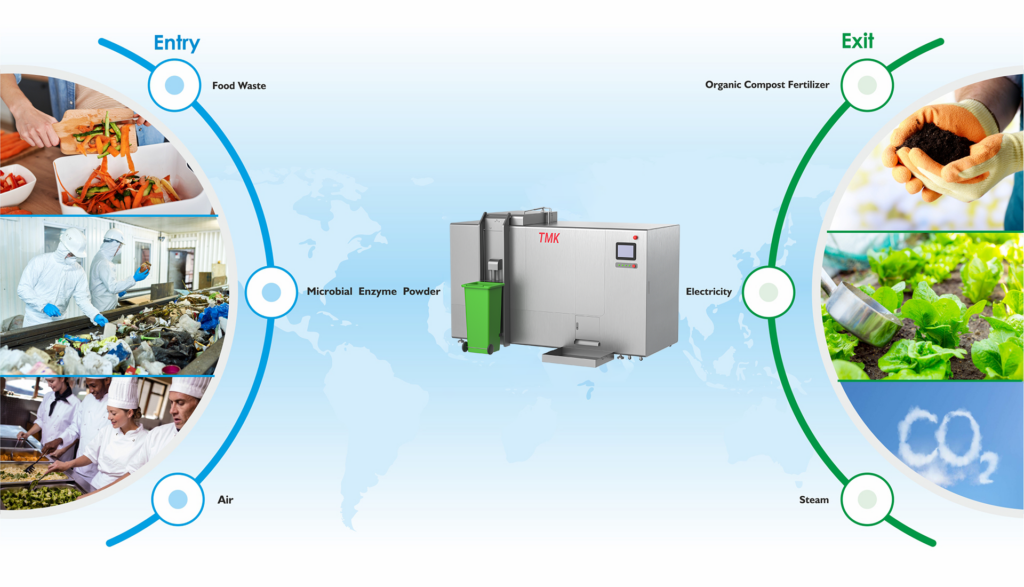
A food waste composting machine is a device designed to accelerate the natural decomposition of organic waste, particularly food scraps, into nutrient-rich compost. Composting is a process that turns organic materials into a valuable soil amendment by promoting the activity of microorganisms that break down the waste into a nutrient-rich and humus-like material.
Food waste composting machines are typically designed for use in homes, businesses, or institutions where there is a significant amount of food waste generated. These machines create an environment that supports the microbial activity necessary for composting, including the right balance of moisture, aeration, and temperature.
Here are some common features and aspects of food waste composting machines:
-
Size and Capacity: Machines come in various sizes, from small countertop units suitable for households to larger systems designed for commercial or industrial use.
-
Automation: Some machines are fully automated, using technology to control factors such as temperature, aeration, and moisture to optimize the composting process. Others may require manual monitoring and adjustments.
-
Process Time: The composting time can vary depending on the machine and its design. Some machines are capable of producing compost in a matter of days, while others may take several weeks.
-
Odor Control: Many composting machines are designed with odor control mechanisms to minimize unpleasant smells associated with decomposing food waste.
-
Compost Quality: The resulting compost should be a nutrient-rich material that can be used to enhance soil fertility.
-
Ventilation and Aeration: Adequate ventilation and aeration are crucial for the composting process. Some machines incorporate mechanisms to ensure proper air circulation.
-
User-Friendly: For home use, many machines are designed to be user-friendly, with easy-to-use controls and minimal maintenance requirements.
By using a food waste composting machine, individuals and businesses can reduce the amount of organic waste sent to landfills, lower greenhouse gas emissions associated with decomposition in landfills, and produce valuable compost that can be used for gardening or landscaping purposes.

